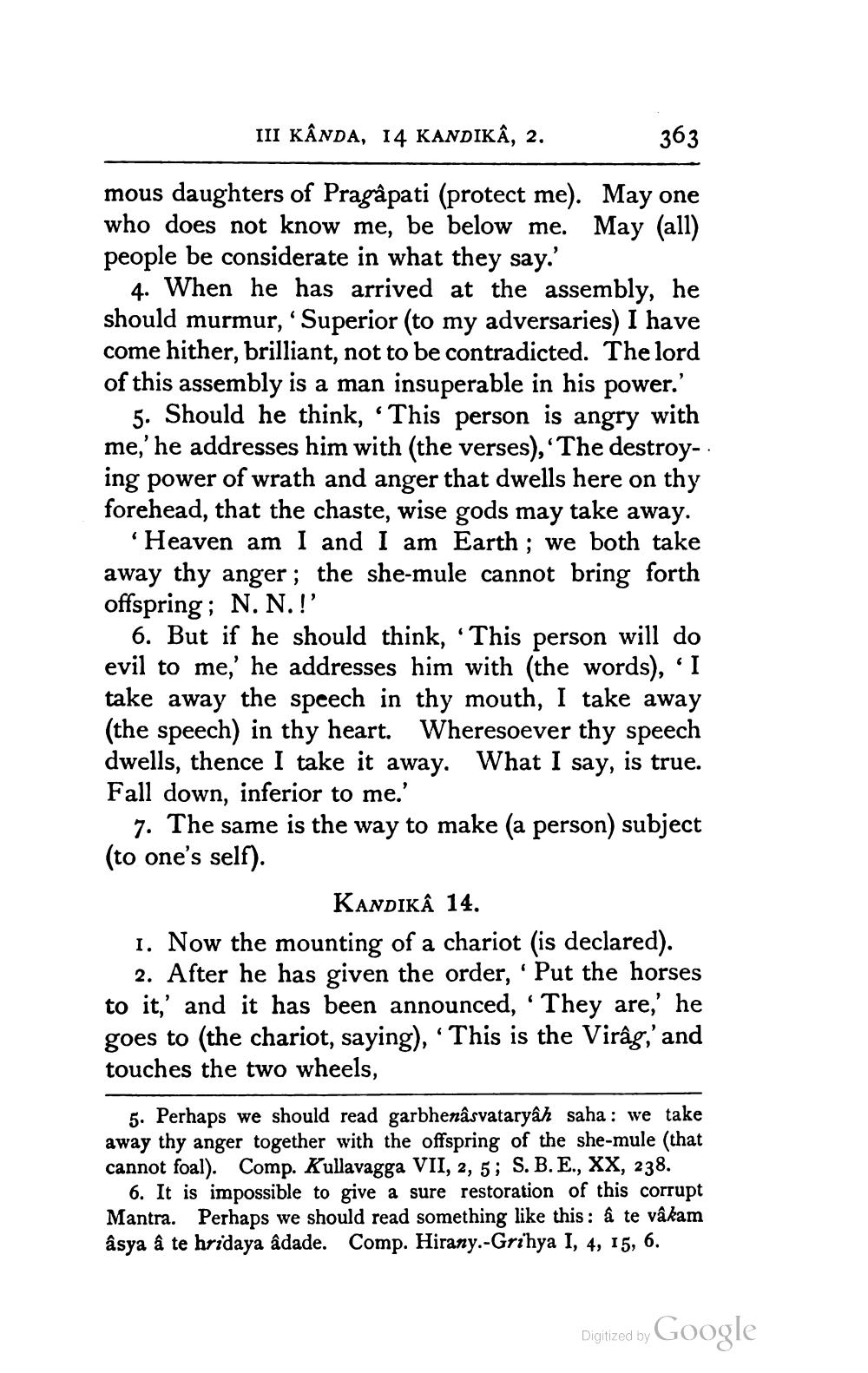________________
III KÂNDA, 14 KANDIKÂ, 2.
363
mous daughters of Pragậpati (protect me). May one who does not know me, be below me. May (all) people be considerate in what they say.
4. When he has arrived at the assembly, he should murmur, Superior (to my adversaries) I have come hither, brilliant, not to be contradicted. The lord of this assembly is a man insuperable in his power.'
5. Should he think, “This person is angry with me,' he addresses him with (the verses), 'The destroy-. ing power of wrath and anger that dwells here on thy forehead, that the chaste, wise gods may take away.
'Heaven am I and I am Earth ; we both take away thy anger; the she-mule cannot bring forth offspring; N. N.!'
6. But if he should think, 'This person will do evil to me,' he addresses him with (the words), 'I take away the speech in thy mouth, I take away (the speech) in thy heart. Wheresoever thy speech dwells, thence I take it away. What I say, is true. Fall down, inferior to me.'
7. The same is the way to make a person) subject (to one's self).
KANDIKÂ 14. 1. Now the mounting of a chariot (is declared).
2. After he has given the order, 'Put the horses to it,' and it has been announced, 'They are," he goes to (the chariot, saying), “This is the Virág,' and touches the two wheels,
5. Perhaps we should read garbhenâsvataryah saha : we take away thy anger together with the offspring of the she-mule (that cannot foal). Comp. Kullavagga VII, 2, 5; S. B.E., XX, 238.
6. It is impossible to give a sure restoration of this corrupt Mantra. Perhaps we should read something like this: å te vâkam âsya â te hridaya âdade. Comp. Hirany.-Grihya I, 4, 15, 6.
Digitized by Google




